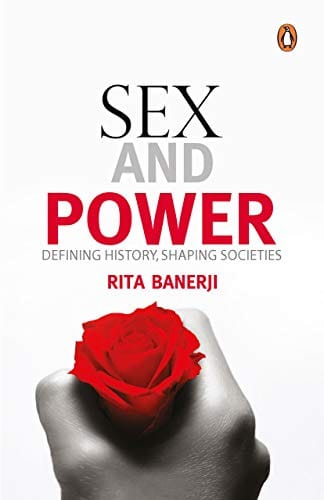WELCOME TO MIDLAND BOOK SHOP!
SHOP FOR
- Contemporary Fiction
- Contemporary Fiction
- Children
- Children
- Comics & Graphic Novels
- Comics & Graphic Novels
- Non-Fiction
- Non-Fiction
- Fiction
- Fiction
Shop No.20, Aurobindo Palace Market, Hauz Khas, Near Church +91 9818282497 | 011 26867121 110016 New Delhi IN
Midland The Book Shop ™
Shop No.20, Aurobindo Palace Market, Hauz Khas, Near Church +91 9818282497 | 011 26867121 New Delhi, IN
+919871604786 https://www.midlandbookshop.com/s/607fe93d7eafcac1f2c73ea4/676a925de6f825019b0470ed/instagram-post-3--480x480.jpeg" [email protected]9780143064718 60ad06f2da44d5f9df84faa4 Sex and Power https://www.midlandbookshop.com/s/607fe93d7eafcac1f2c73ea4/60ad06f3da44d5f9df84fade/9780143064718-us.jpg ‘Sex underlies human existence, and if human life is sacred, how can sex not be?' As squeamish as India is today about sex, this is also the land where queens once copulated with head horses at religious ceremonies, where the art of love-making was declared the revelation of the gods and recorded in elaborate detail in the kama sutras and prostitution was a form of sacred offering at temples adorned with erotic sculptures. Using India as a paradigm, Rita Banerji illustrates that sexual morality is not an absolute but a facet of living that undergoes periodic upheavals. She delineates four major periods in Indian history when there were significant shifts in the collective social perception of sex and sexuality, and the associated customs and beliefs. What causes this revision in sexual ethos? To explain this, Sex and Power proposes a modified version of Nietzsche's slave versus master morality theory. The theory, which is tested against the dynamics of each of the four defined periods, establishes that the moral overview of any given period is determined not by a set of pre-existing ethics but by the existent power structure of the period in question. The accepted moral code actually serves the party in power. How would this theory play out in the context of India today? Banerji examines this question at length as one of extreme urgency, and concludes that the three most burning issues facing the country today—population explosion, AIDS and female genocide—are the manifestations of a collective sexual malfunctioning of society and need to be redressed in the context of an existent social and economic power hierarchy. 9780143064718
out of stock INR 399
1 1
Email ID already exists!
Your Current password is incorrect
Password Updated Successfully
Thanks for your Feedback
- Home
- Non-Fiction
- Sex and Power
Sex and Power
ISBN: 9780143064718
₹399
₹499 (20% OFF)SIZE GUIDE
Back In Stock Shortly
Sold By: Hauz Khas - Aurobindo Market
Details
- ISBN: 9780143064718
- Author: Rita Banerji
- Publisher: Penguin
- Pages: 432
- Format: Paperback
Book Description
‘Sex underlies human existence, and if human life is sacred, how can sex not be?' As squeamish as India is today about sex, this is also the land where queens once copulated with head horses at religious ceremonies, where the art of love-making was declared the revelation of the gods and recorded in elaborate detail in the kama sutras and prostitution was a form of sacred offering at temples adorned with erotic sculptures. Using India as a paradigm, Rita Banerji illustrates that sexual morality is not an absolute but a facet of living that undergoes periodic upheavals. She delineates four major periods in Indian history when there were significant shifts in the collective social perception of sex and sexuality, and the associated customs and beliefs. What causes this revision in sexual ethos? To explain this, Sex and Power proposes a modified version of Nietzsche's slave versus master morality theory. The theory, which is tested against the dynamics of each of the four defined periods, establishes that the moral overview of any given period is determined not by a set of pre-existing ethics but by the existent power structure of the period in question. The accepted moral code actually serves the party in power. How would this theory play out in the context of India today? Banerji examines this question at length as one of extreme urgency, and concludes that the three most burning issues facing the country today—population explosion, AIDS and female genocide—are the manifestations of a collective sexual malfunctioning of society and need to be redressed in the context of an existent social and economic power hierarchy.
User reviews
NEWSLETTER
Subscribe to get Email Updates!
Thanks for subscribing.
Your response has been recorded.

India's Iconic & Independent Book Store offering a vast selection of books across a variety of genres Since 1978.
"We Believe In The Power of Books" Our mission is to make books accessible to everyone, and to cultivate a culture of reading and learning. We strive to provide a wide range of books, from classic literature, sci-fi and fantasy, to graphic novels, biographies and self-help books, so that everyone can find something to read.
Whether you’re looking for your next great read, a gift for someone special, or just browsing, Midland is here to make your book-buying experience easy and enjoyable.
We are shipping pan India and across the world.
For Bulk Order / Corporate Gifting
 +91 9818282497 |
+91 9818282497 |  [email protected]
[email protected]
Click To Know More
INFORMATION
ACCOUNT
QUICK LINKS
ADDRESS
Midland Book Shop - Hauz Khas
Shop No.20, Aurobindo Palace Market, Near Church, New Delhi
Shop No.20, Aurobindo Palace Market, Near Church, New Delhi














